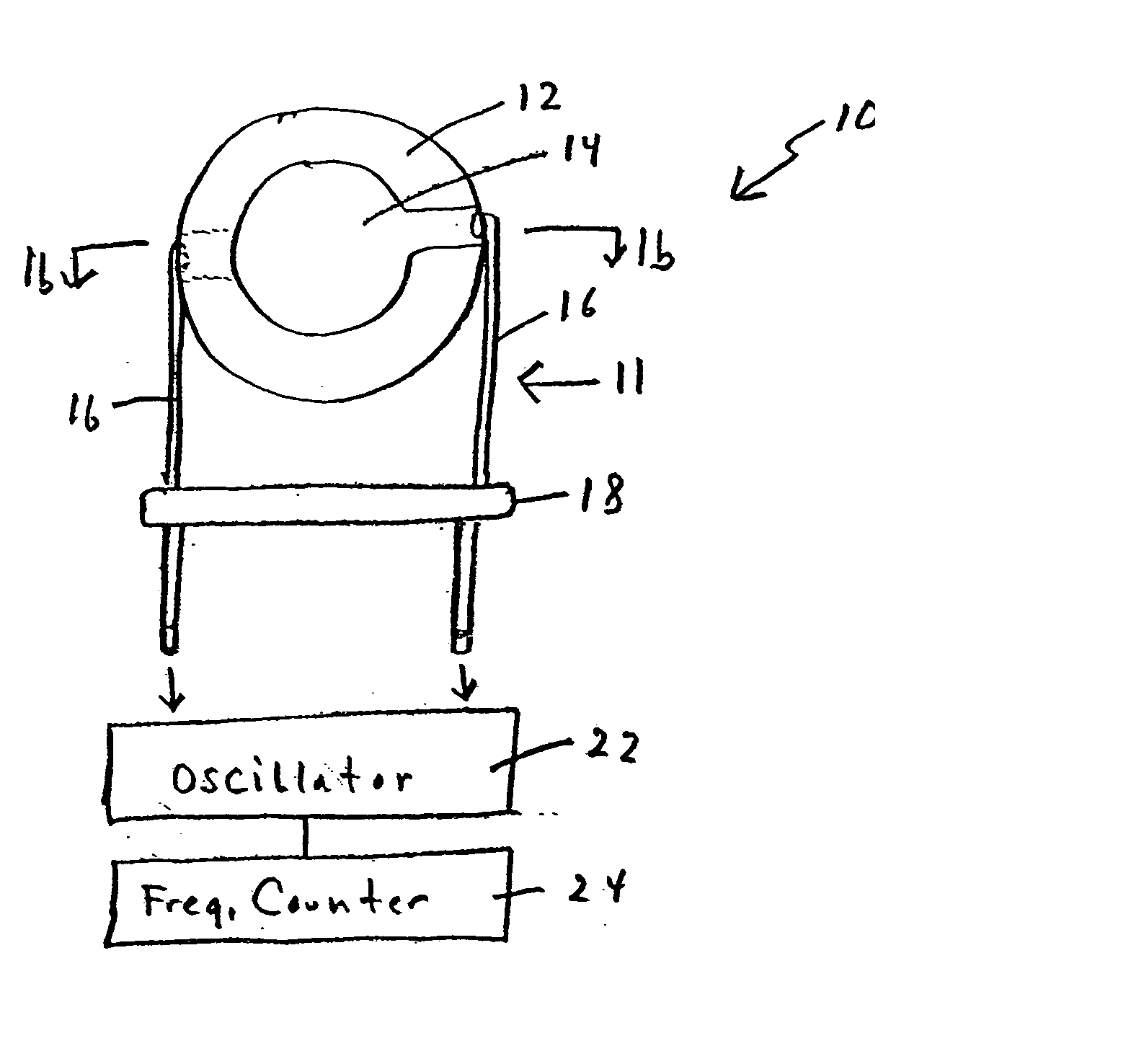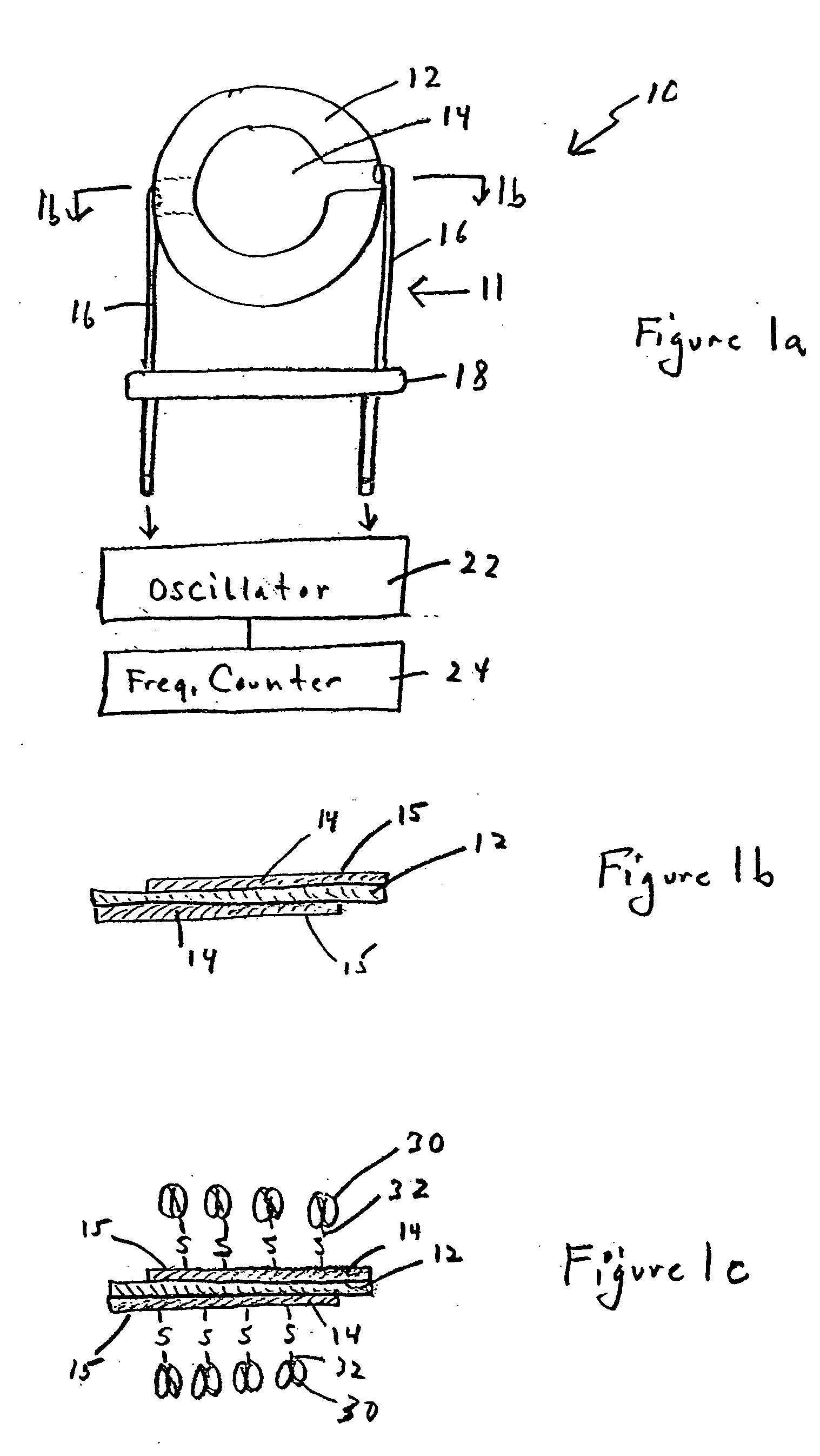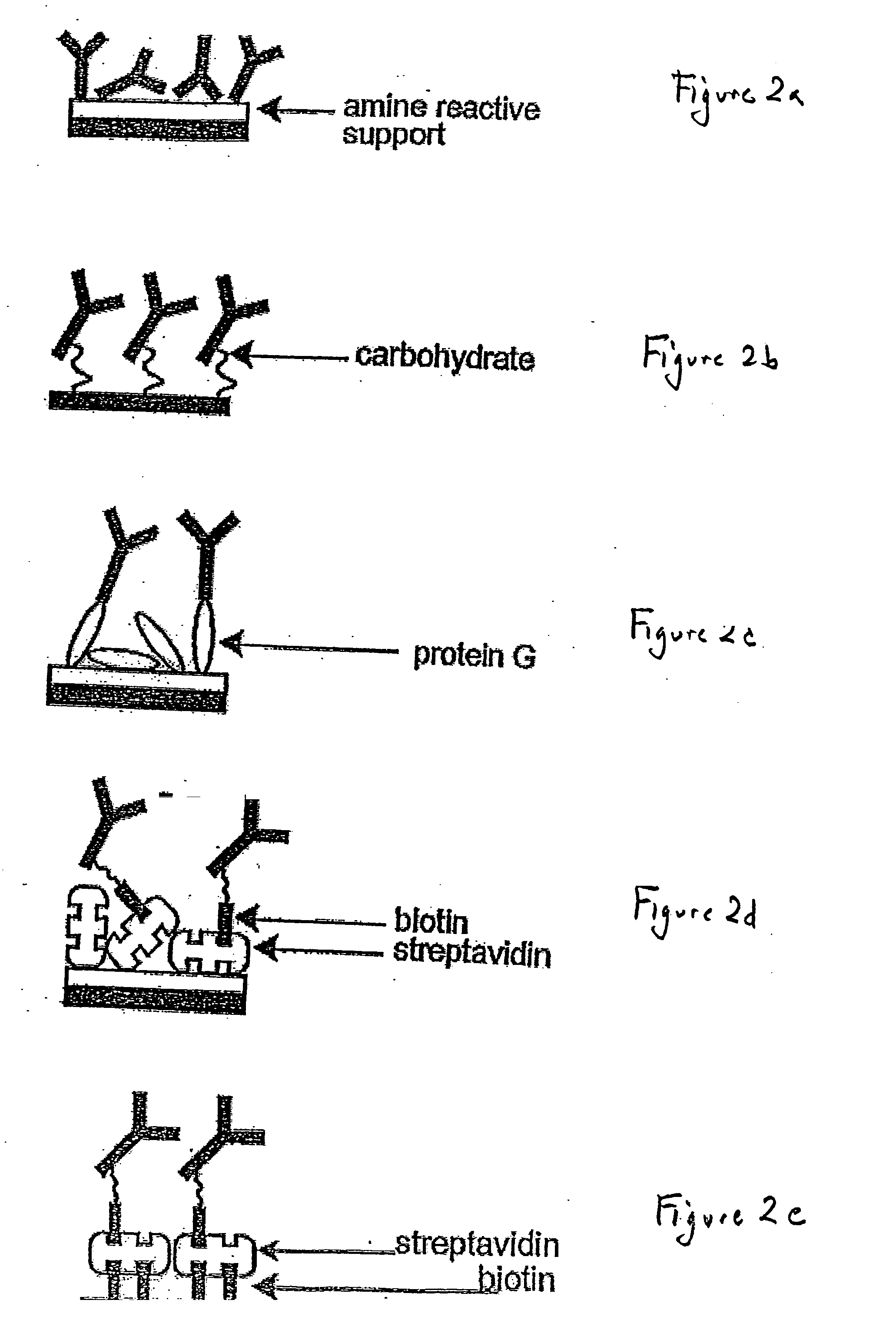Piezoimmunosensor
a piezoelectric mass and sensor technology, applied in the field can solve the problems of too small detection, delay in analytical application of qcm, and researchers' doubts about the potential of piezoelectric mass sensing devices as biosensors, and achieve the effect of facilitating self-assembly
- Summary
- Abstract
- Description
- Claims
- Application Information
AI Technical Summary
Benefits of technology
Problems solved by technology
Method used
Image
Examples
example 1
[0174] This example provides an illustration of a method for making a piezoelectric sensor for detecting human IgG2. The sensor comprises recombinant scFv polypeptides of the Fv of a mouse monoclonal antibody specific for constant 1 domain of the human IgG2 heavy chain with a carboxy cysteine immobilized on the gold receptor surface of a commercially available quartz AT crystal via the sulfur of the carboxy cysteine residue.
[0175] The mouse hybridoma producing the anti-human IgG2 monoclonal antibodies was CRL-1752 which was obtained from the American Type Culture Collection, 10801 University Boulevard, Manassas, Va.
[0176] The genes encoding the variable is accomplished using standard molecular biology methods. RNA is extracted from hybridoma cells and reverse transcribed to make a cDNA copies of the RNA. Then, the cDNA is PCR amplified with degenerate oligonucleotide primers, one set of primers for amplifying the VH domain and another set of primers for amplifying the VL domain. E...
example 2
[0181] This example illustrates the general method for making a piezoelectric sensor.
[0182] Current biosensors provide accurate detection but have significant disadvantages in terms of cost, time needed for detection, lack of portability, ability to function in a “dirty” environment, and the need for highly trained technicians to operate the systems. Piezoimmunosensor (PZ) technology, which places antibodies on a quartz crystal microbalance (QCM) to detect minute changes in mass as the antibodies bind with antigens, can address these drawbacks. However, use of PZ technology in biosensors is problematic due to the complex nature of whole antibodies, which causes problems with non-specific interactions and molecule trapping.
[0183] The present invention is a highly sensitive and specific PZ biosensor which uses recombinant single-chain antibody variable fragments (Fv). The Fvs are engineered so as to form a “lawn” of antigen-binding sites coating the surface of the QCM. This involves...
example 3
[0229] The A10B hybridoma cell line, ATCC No. ______ deposited Jun. 2, 2004, producing a monoclonal antibody (MAb) specific for rabbit IgG was used to provide an ScFv antibody for the piezoimmunosensor of the present invention. The hybridoma cell line designated A10B was used as the source of genetic information for production of scFv. This cell line produces a monoclonal IgG antibody that binds specifically to the constant region (CH1) of rabbit IgG. A10B scFv thus generated contained antibody variable heavy and light chains joined together by either a GGGGSGGGGSGGGGS (A10B scFv) or CGGGSGGGGSGGGGS (A10B scFv-cys) or SHGGHGGGGSGGGGS (A10B scFv-his) linker sequences. Female Balb / c mice immunized with purified rabbit IgG were used as a source of B spleen cells to produce the A10B hybridoma cell line. The QUICKPREP mRNA purification kit (AmershamFrom Biosciences, Piscataway, N.J.) was used to purify mRNA from approximately 5×106 A10B hybridoma cells. The RPAS kit (AmershamFrom Bioscie...
PUM
| Property | Measurement | Unit |
|---|---|---|
| density | aaaaa | aaaaa |
| shear modulus | aaaaa | aaaaa |
| diameter | aaaaa | aaaaa |
Abstract
Description
Claims
Application Information
 Login to View More
Login to View More - R&D
- Intellectual Property
- Life Sciences
- Materials
- Tech Scout
- Unparalleled Data Quality
- Higher Quality Content
- 60% Fewer Hallucinations
Browse by: Latest US Patents, China's latest patents, Technical Efficacy Thesaurus, Application Domain, Technology Topic, Popular Technical Reports.
© 2025 PatSnap. All rights reserved.Legal|Privacy policy|Modern Slavery Act Transparency Statement|Sitemap|About US| Contact US: help@patsnap.com



